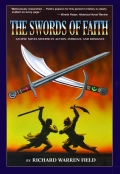Posted by rwf1954 in afterlife, book review, books, Chris Hejmanowski, Collider, consciousness, metaphysics, novel, novel review, spirituality.
Tags: afterlife, book commentary, book review, books, Chris Hejmanowski, Collider, consciousness, metaphysics, novel, novel review, spirituality
Collider, written by Chris Hejmanowski, is a novel that makes an ambitious attempt to blend physics and metaphysics (an idea I have been playing with since I predicted a completed union of the two by the year 3000 in my essay published in on-line journal “New Works Review” – “Predictions for the Next Millennium”). From my perspective, for my priorities, Collider spends more time on the imagery of heaven and hell in the afterlife, and on the demons in hell, than on the science. But the attempt to link the two is present and stimulates thought processes toward this grand, for some unthinkable, unification. So I am commenting about this book today, recommending it to people interested in this subject.
Collider is the story of particle physicist Fin Canty, on the verge of a trip to the CERN particle collider to evaluate what may be a seminal particle physics discovery when he is killed in what appears to be random gang violence. (As the novel unfolds, we find out Canty’s death was not random at all.) His post-death choice to leave heaven to pursue his toddler daughter, who has ended up in hell after being killed as a result of the same gang violence, brings him into contact with vivid, horrifying imagery and sensations. The result of his efforts to rescue his innocent daughter burst forth into the consciousness of living humanity with the potential of creating a bridge between science and the Divine.
Within the action of Fin Canty’s struggle in the afterlife, and the investigations of the still-living characters into Fin Canty’s murder and its aftermath, Hejmanowski addresses issues of faith and belief. The strength of Fin Canty’s faith serves him well. But faith also warps some of the other characters’ motivations and behaviors. Faith and belief are very much double-edged swords for Good or Evil in Collider.
Collider is a vivid, suspense-filled story set within cutting-edge physics suggesting a union between science and religion—entertaining and thought-provoking simultaneously.
Also/Afterthought: I enjoyed the quote at the beginning of Hejmanowski’s novel from Albert Einstein: “Reality is an illusion, albeit a very persistent one.” I think this quote reflects the human limitations of perceiving reality. We are only capable of perceiving what is available to our own three/four dimensional space/time frame of reference. I would not use the word “illusion,” unless we want to call reality a shared illusion. I have read that cats occupy the same locales as their pet-owners, but experience a very different reality with different focuses and priorities. This is “relativity” demonstrated at its most basic level. I think we humans face the same issue. But, it is a persistent reality we occupy—even if we understand we may not perceive what other consciousnesses perceive, this is what we have! Perhaps a more accurate quote would be: “Reality may shift depending upon the perceptive capabilities of the consciousness experiencing it, but we have only our own perceptive tools available, so are stuck with reality the way it is.” On second thought—Einstein, yours is simpler, and more elegant!
I explore these issues in other blog posts on this subject:
Meditations on Physics, Metaphysics and Consciousness – August 30, 2011
Meditations on Physics, Metaphysics and Consciousness II – October 7, 2011
Meditations on Physics, Metaphysics and Consciousness – Commentary on Dr. Eben Alexander’s book Proof of Heaven – February 1, 2013
Posted by rwf1954 in book review, historical fiction.
Tags: Kamran Pasha, Maimonides, novel, Richard the Lionheart, Saladin, Third Crusade
(Richard Warren Field wrote the award-winning novel,
The Swords of Faith. Read why this book will make a great movie.)
In one of those mystical, synchronous confluences of events, another novelist has taken on the legendary clash between Richard the Lionheart and Saladin. (My novel on this subject, The Swords of Faith, is scheduled for release on July 4th by Strider Nolan Media.) This moment in history draws us in, beckoning us to determine if there are lessons to be learned from these centuries-old events, involving epic clashes between Christians and Muslims in so-called “holy wars.” That’s what drew me to the subject: it is also what drew Kamran Pasha to the subject. I have read an advance copy, and offer my thoughts as a novelist working with the same historical events.
Kamran Pasha’s Shadow of the Swords is an imaginative story based on the factions and iconic historical figures participating in what history now calls the “Third Crusade.” Though set over eight hundred years in the past, Pasha raises issues stemming from the clash of religious fanatics, issues that still permeate our contemporary world. He offers the idea, a controversial and debatable idea with the potential to stimulate insightful thought and reflection, that the “Crusaders” of the late Twelfth Century were equivalent to Al-Qaeda of the present day.
Pasha delves deeply into character, with both the historical characters of his novel, and the characters he has created. His Saladin retains the noble qualities of the legendary Saladin of history, with the addition of some humanizing qualities that add richness to the story. His Richard the Lionheart emphasizes the brutal aspects of the Christian king’s nature, contrasting with the gentler, more just, more tolerant traits of Saladin. Another character is his creation— the alluring niece of Saladin’s Jewish physician whose complex nature is shaped by her tumultuous past. Her connections with both Saladin and Richard drive the story in suspenseful, exotic directions. His introduction of this character allows Pasha to bring Saladin’s Jewish physician, the revered philosopher Maimonides, into a prominent role in the story. This serves to emphasize that Jews and Muslims existed together harmoniously during the days of Saladin, often together opposing Christians from Western Europe.
Shadow of the Swords is scheduled to come out June 22, 2010. Kamran Pasha also wrote the previously published Mother of the Believers, written after Shadow of the Swords, but published before it. Mother of the Believers is about the early days of Islam. Pasha’s blog offers some fascinating observations about present-day events, including the Fort Hood attack by Nidal Malik Hasan and another post comparing a prominent Muslim terrorist to Jim Jones. Pasha, a Muslim, unequivocally condemns Al-Qaeda’s terrorist tactics and urges Muslims and Christians to adhere, in belief and deed, to the peaceful, constructive visions articulated by their faiths. His new novel, as well as posts at his blog, reflect this point of view.
Link for the purchase Shadow of the Swords at Amazon:

Shadow of the Swords by Kamran Pasha




Book Commentary on COLLIDER by Chris Hejmanowski March 1, 2013
Posted by rwf1954 in afterlife, book review, books, Chris Hejmanowski, Collider, consciousness, metaphysics, novel, novel review, spirituality.Tags: afterlife, book commentary, book review, books, Chris Hejmanowski, Collider, consciousness, metaphysics, novel, novel review, spirituality
3 comments
Collider, written by Chris Hejmanowski, is a novel that makes an ambitious attempt to blend physics and metaphysics (an idea I have been playing with since I predicted a completed union of the two by the year 3000 in my essay published in on-line journal “New Works Review” – “Predictions for the Next Millennium”). From my perspective, for my priorities, Collider spends more time on the imagery of heaven and hell in the afterlife, and on the demons in hell, than on the science. But the attempt to link the two is present and stimulates thought processes toward this grand, for some unthinkable, unification. So I am commenting about this book today, recommending it to people interested in this subject.
Collider is the story of particle physicist Fin Canty, on the verge of a trip to the CERN particle collider to evaluate what may be a seminal particle physics discovery when he is killed in what appears to be random gang violence. (As the novel unfolds, we find out Canty’s death was not random at all.) His post-death choice to leave heaven to pursue his toddler daughter, who has ended up in hell after being killed as a result of the same gang violence, brings him into contact with vivid, horrifying imagery and sensations. The result of his efforts to rescue his innocent daughter burst forth into the consciousness of living humanity with the potential of creating a bridge between science and the Divine.
Within the action of Fin Canty’s struggle in the afterlife, and the investigations of the still-living characters into Fin Canty’s murder and its aftermath, Hejmanowski addresses issues of faith and belief. The strength of Fin Canty’s faith serves him well. But faith also warps some of the other characters’ motivations and behaviors. Faith and belief are very much double-edged swords for Good or Evil in Collider.
Collider is a vivid, suspense-filled story set within cutting-edge physics suggesting a union between science and religion—entertaining and thought-provoking simultaneously.
Also/Afterthought: I enjoyed the quote at the beginning of Hejmanowski’s novel from Albert Einstein: “Reality is an illusion, albeit a very persistent one.” I think this quote reflects the human limitations of perceiving reality. We are only capable of perceiving what is available to our own three/four dimensional space/time frame of reference. I would not use the word “illusion,” unless we want to call reality a shared illusion. I have read that cats occupy the same locales as their pet-owners, but experience a very different reality with different focuses and priorities. This is “relativity” demonstrated at its most basic level. I think we humans face the same issue. But, it is a persistent reality we occupy—even if we understand we may not perceive what other consciousnesses perceive, this is what we have! Perhaps a more accurate quote would be: “Reality may shift depending upon the perceptive capabilities of the consciousness experiencing it, but we have only our own perceptive tools available, so are stuck with reality the way it is.” On second thought—Einstein, yours is simpler, and more elegant!
I explore these issues in other blog posts on this subject:
Meditations on Physics, Metaphysics and Consciousness – August 30, 2011
Meditations on Physics, Metaphysics and Consciousness II – October 7, 2011
Meditations on Physics, Metaphysics and Consciousness – Commentary on Dr. Eben Alexander’s book Proof of Heaven – February 1, 2013